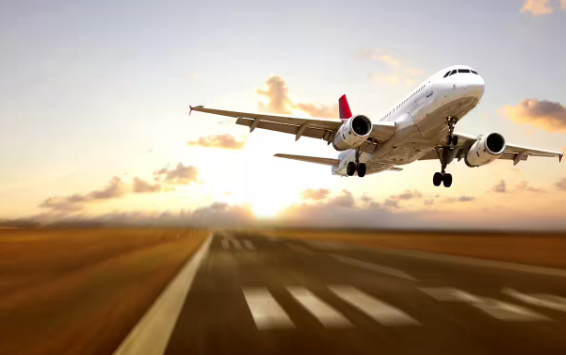GST Increase: What’s New for Premium Flight Tickets?
The recently announced changes in Goods and Services Tax (GST) rates have stirred the aviation sector, especially regarding non-economy class flight tickets. The GST Council has introduced a revised two-rate structure effective from September 22, where premium cabin travelers will see their GST rate jump to 18%, a rise from the earlier 12%. Meanwhile, economy class flights retain their GST rate at 5%, reflecting a significant difference in tax treatment within the same mode of transport.
IATA’s Take: Why the Hike is Seen as Disappointing
The International Air Transport Association (IATA), representing over 350 airlines globally including Indian carriers, voiced clear disappointment on this development. In their view, increasing taxation on premium travel is counterproductive and lacks justification. Their concern centers on the negative effect this holds for airlines’ efforts in improving passenger experience, specifically in premium cabins which often contribute meaningfully to route profitability.
Sheldon Hee, Regional Vice President for Asia Pacific at IATA, highlighted that the GST on non-economy travel has dramatically risen — from an 8.6% service tax in 2017 to 18% now. This adjustment contrasts sharply with the growth story of Indian aviation, which has invested substantially in premium product enhancements and world-class infrastructure.
Table: GST Rates Comparison for Flight Classes
| Flight Class | Previous GST Rate | New GST Rate (Effective Sept 22) |
|---|---|---|
| Economy Class | 5% | 5% |
| Non-Economy Class (Business, First) | 12% | 18% |
Economic Impact and Industry Context
India stands as the world’s third-largest aviation market, with passenger numbers expected to double to 500 million by 2030. This rapid growth intensifies the need for sustainable policies and taxation strategies. IATA stresses that Asia Pacific airlines are operating with razor-thin margins — anticipating profits as low as 2.60 USD per passenger by 2025. The hike in GST for premium seating could erode profitability and discourage demand, risking the viability of certain routes where business and first-class passengers play a crucial role.
On the flip side, business analysts suggest that the impact on demand might be limited, as the premium segment typically exhibits low price sensitivity. Some passengers might opt to downgrade to economy, a phenomenon known as downtrading, but full demand collapse is unlikely.
Potential Passenger Responses to GST Hike
- Switching to economy class: Passengers seeking to avoid higher taxes may opt for economy seats.
- Absorbing increased costs: Business and first-class travelers with lower price elasticity may accept higher fares.
- Reduced discretionary travel: Some premium travelers might cut back on non-essential trips.
Důsledky pro taxislužbu a přepravu
This GST increase can indirectly affect related travel services such as taxis and transfers. Premium travelers often prefer quality and comfort throughout their journey, not just on the plane. With passenger spending patterns potentially shifting, the demand for high-end transfer services tailored to business or first-class clients might fluctuate. Transfer platforms that offer transparency and allow users to select specific vehicles, including luxury sedans or limousines, are in a strong position to cater to this discerning clientele.
For example, platforms like LocalsRide.com provide travelers with the ability to view detailed vehicle information, including make, model, and driver ratings, well before booking. This level of transparency and choice helps travelers optimize their trip experience, whether flying economy or flying high in premium cabins.
Summary and Outlook
The GST hike on non-economy flight tickets poses a new challenge to the aviation sector, especially for airlines striving to offer improved premium experiences amid tight margins. While it maintains a steady 5% GST rate on economy travel — keeping budget fares relatively stable — the increased taxation on premium classes might influence passenger behavior and airline economics. This development underscores the delicate balance tax policies must strike to support both industry growth and government revenue goals.
Why Personal Experience Still Counts
Though reviews and expert opinions offer valuable insights into taxation and travel trends, nothing beats firsthand experience. The true test of these changes’ impact lies with travelers making real-time decisions. On LocalsRide, users can hire vehicles from verified providers, choosing from a broad array of options that suit any budget and preference. This empowers users to make well-informed travel choices without unwanted surprises or unnecessary expenses.
With its unmatched transparency and convenience, LocalsRide offers affordable taxi and transfer services, covering everything from quick airport rides to luxurious limousine transfers.
Získejte nejlepší nabídky on tailored transfers and travel journeys by visiting LocalsRide.com.
Wrapping It Up
The raised GST on premium flight tickets delivers a noteworthy signal to airlines, travelers, and policymakers about the need to carefully consider taxation impacts on travel demand and profitability. For travelers navigating this dynamic environment, selecting the right transfers and taxis can enhance the overall journey, especially when seamless booking and vehicle options are just a few clicks away.
LocalsRide stands out by allowing precise trip planning and offering detailed vehicle and driver info for transfers worldwide. This approach fits perfectly into the broader context of evolving travel needs, ensuring that from airport rides to city tours, travelers have the best service, price transparency, and comfort at their fingertips.

